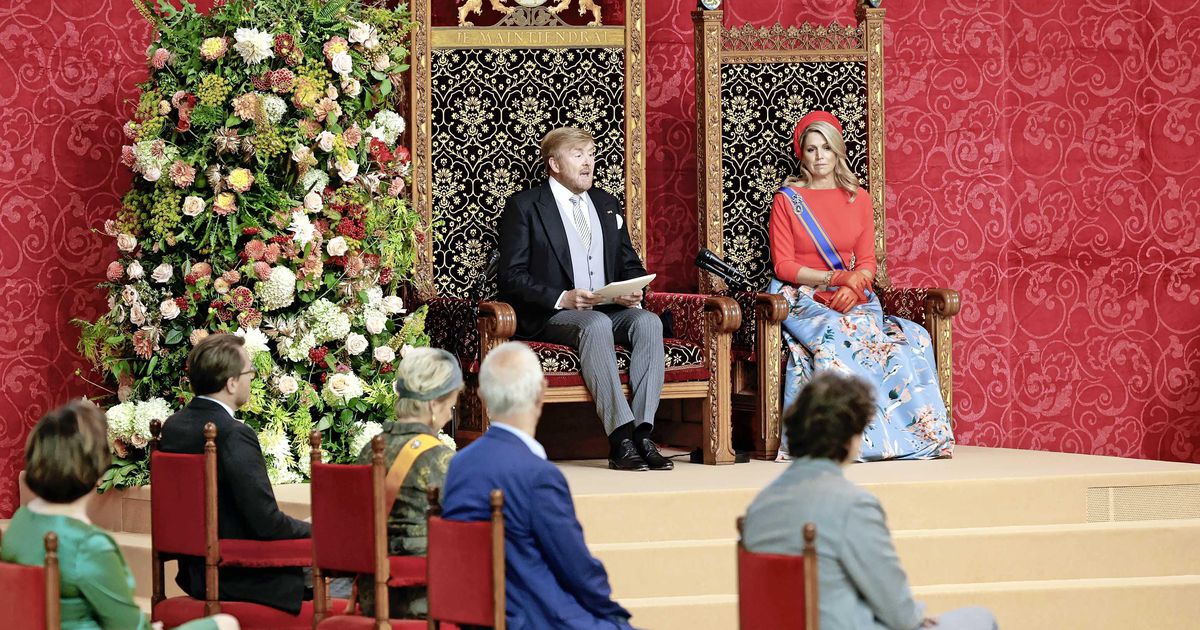For many workers, it is becoming increasingly difficult to make ends meet due to delayed income, higher taxes and rising expenses, the VCP union says in an initial reaction.
“The projected purchasing power picture is quite disappointing, if you look at the booming economic recovery,” says Nick van Holstein, President of VCP. According to Van Holstein, the picture of purchasing power is disappointing not only for workers, but also for older people with an additional pension. “Disposable income must be structurally increased to maintain the cost of life. Politics should not leave it at the margins.”
Surprised
FNV reported that it was “unpleasantly surprising” that the labor market and the restoration of purchasing power were not mentioned in the throne speech. “The economic recovery is progressing well, but for many people there is still no hope of secure work with decent pay and control,” says FNV President Tor Elzinga. In addition to the main problems in the field of climate and housing, there are also pressing problems in the labor market and within the public sectors. Doing nothing at the expense of workers and society.”
Elzinga calls for investment in permanent jobs, an increase in the minimum wage, security for workers, strong public sectors and a sustainable recovery from the crisis. “Unfortunately, we have to conclude that after decades of belated maintenance, the Cabinet is once again unable to move forward beyond a policy of snap, without a vision to solve problems.”
The bosses
Employers are confident the outgoing government is taking steps to tackle climate and housing problems, but are critical of the government’s slow formation. “Due to the major issues, we cannot afford that most policies are almost off,” business organizations VNO-NCW and MKB-Nederland say in a joint response.
“For the interim cabinet, you can call the budget note rich in politics, but for the main issues facing our country, a hundred million a year for the housing issue and 400 million a year for the climate is not enough,” notes VNO-NCW Chairperson Ingrid Tejsen. “Every day we notice in practice that the policy machine in The Hague has stopped after six months.”
MKB-Nederland wants more attention to labor market shortages, sustainable investments and post-coronavirus recovery. “Business people feel the urgency, but there is a need for a cabinet that makes decisions, so that they know which direction things are going,” said Chairman Jaco Vonhoff.
shortening
“Government is failing on all sides and failing to deliver,” says Rainier Castelen, president of the De Unie trade union. “From delayed benefits and support packages, improperly collected taxes, and contradictory climate policy to inadequate care. Even the formation of the cabinet is not possible. In the meantime, costs continue to rise and this is offset by little or no purchasing power. It is a recipe for boring misery.”
“For the working Netherlands, 2022 portends to be another lost year,” said CNV President Pete Fortuyn. “The economy is booming, but the job market is creaking and creaking on all sides.” For example, it refers to the problems that arise due to flexible contracts, fake self-employment, and temporary jobs. “There is SER advice ready for the new cabinet, but it is still in a deep desk drawer because the formation has not started. As a result, the working Netherlands has been left behind.” “The weak policy note offers hardly any solutions to the pressing problems the Netherlands is struggling with.”
old
The fact that seniors will make little progress in the next year is “unacceptable” according to elders’ organizations. “Since 2012, workers have increased by more than 20% in purchasing power, and the number of retirees has decreased by more than 1%,” wrote Anbo, KBO-PCOB, Koepel Gepensionerende and NOOM in a joint response. “The interim cabinet and the new government must now ensure that they keep pace with the development of the purchasing power of all groups.”
Entrepreneurship organization FME is disappointed that more efforts have not been made to invest in technology education and labor market reforms. “The technology sector continues to suffer from a stark shortage of technical personnel,” warns FME President Theo Henrar. “It is people who are shifting investments into new technologies and products. For the energy transition, we need a well-educated workforce, and this budget note is not enough at the moment. This is putting the energy transition at risk.”







